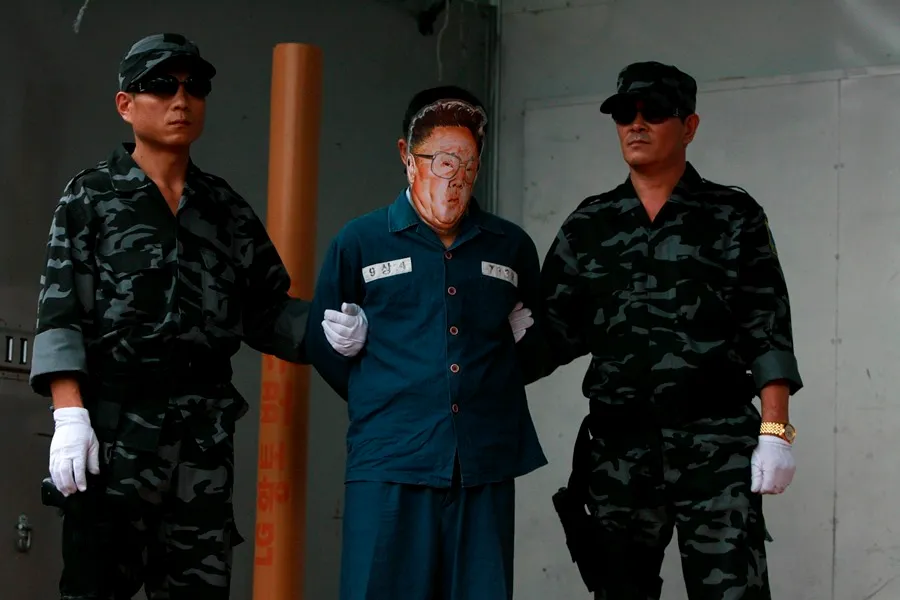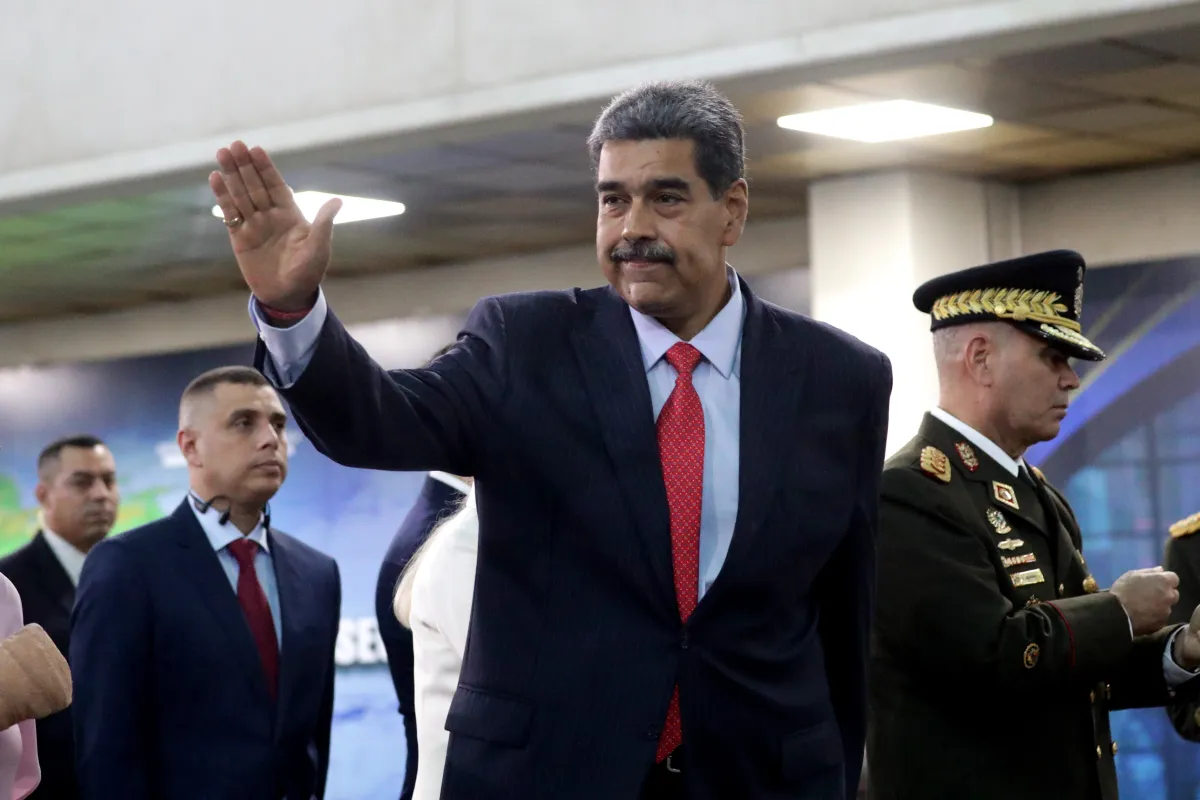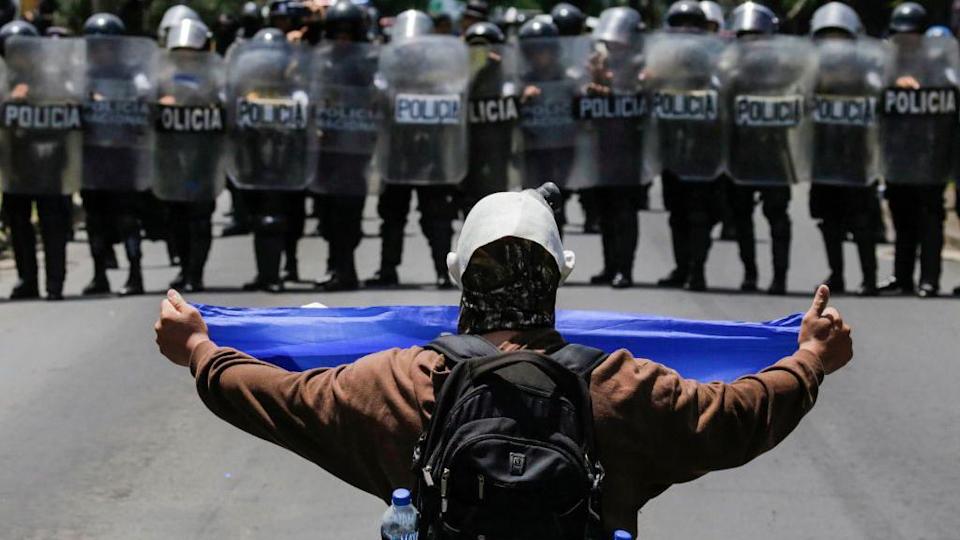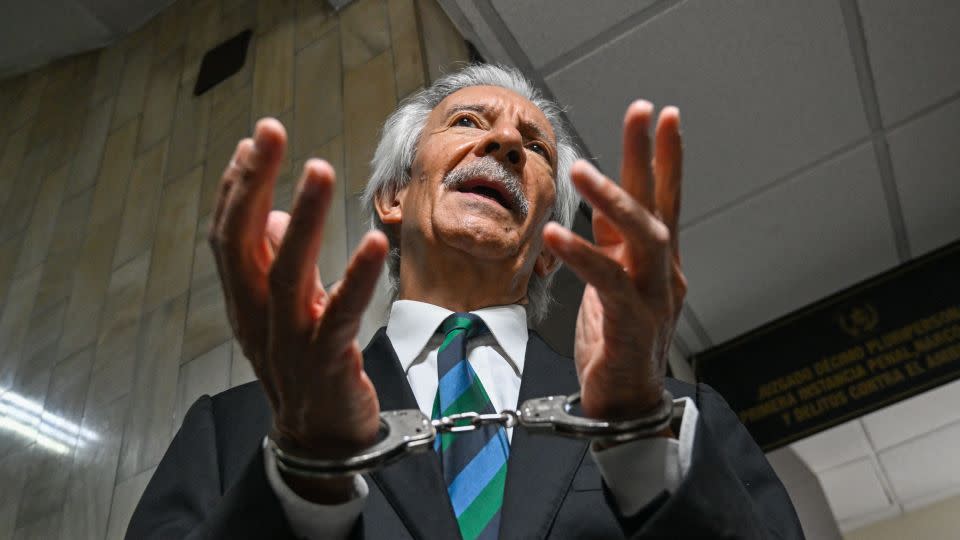Centroamérica
A UN report denounces that slavery is institutionalized in North Korea

The use of forced labor in North Korea, of which they are victims from prisoners to soldiers or citizens abroad, is “deeply institutionalized” in the country and in some cases borders on slavery, a crime against humanity, a United Nations report reveals on Tuesday.
The 84-page document of the UN Office for Human Rights, prepared through interviews conducted in the last decade with 183 North Koreans fleeing the country and now residing in South Korea, offers details about this exploitation in the isolated Kim regime.
“They were forced to work in intolerable conditions, often in dangerous sectors, without salary, free choice, possibility of resignation, protection, medical care, break time, food and accommodation,” summarized the head of human rights of the United Nations, Volker Türk, when presenting the report.
Workers were also subjected to constant surveillance, were beaten frequently, and in the case of women (main testimonies of forced labor in detention centers) they were often victims of sexual violence, the Austrian High Commissioner stressed.
The report identifies different types of forced labor in North Korea, such as taxes in prisons and other detention centers, those who suffer employees whose jobs have been assigned by the State (something very common in the communist regime), or those observed in army soldiers.
There is also this type of exploitation that violates human rights in citizens sent abroad to send foreign currency to the regime, those summoned to special mobilizations or members of the so-called “shock brigades”, usually in the agriculture and construction sectors.
Some of the crudest testimonies of the report are those offered by more than a hundred women sentenced to forced labor after being forcibly repatriated after crossing the border illegally (usually it is usually the one that separates China and North Korea, although the report does not specify it).
After having fallen into networks of trafficking people that sometimes force them to prostitute themselves or contract forced marriages, they are repatriated and in detention they often suffer sexual and physical violence, sometimes forced abortions and denial of medical and hygienic services.
Detained in prisons, re-education camps and other detention centers, the victims relate the harshness of living and working conditions in agricultural, industrial and other tasks in which they often had to meet daily production quotas and received beatings or were deprived of food if they did not comply with them.
“They sent me to grow corn, cabbage, radishes… there was no machinery, so seven or eight of us pulled a cart that would normally be used with oxen,” says one of these women.
Another detainee, destined for construction work, said in the report that he was so hungry that he ate weeds and grass, which made him sick, while another, assigned to a group that carried bags of cement, said that they did not have masks, they constantly breathed the dust of the cement and “could barely breathe.”
In the North Korean army, the report adds, soldiers, who in many cases have to perform a military service of ten years or more, are often forced to also work in agriculture or construction, in dangerous conditions and without adequate health and safety measures.
A former nurse interviewed for the report reported that many of the soldiers she treated had symptoms of malnutrition, which in the worst cases degenerated into tuberculosis.
Abroad, North Korean citizens – often with certain social privileges – are forced to donate 90% of their profits to the State, in sectors such as those already mentioned (agriculture, construction) although there are also in the medical profession or in the hospitality industry.
In order to maintain control over these citizens abroad, their passports are confiscated, they are constantly monitored and they usually live in very bad conditions, with hardly any free time or contact with their families in North Korea, the report says.
In general, the regime controlled by Kim Jong-un, inherited from his father and grandfather, controls and exploits its citizens “through an extensive system of forced labor at various levels” intended for the interests of the State rather than the citizenry, concludes the United Nations study.
A system in which every North Korean, after completing his studies or military service, is assigned to a workplace without choice, or the possibility of forming unions, and where he lives under the threat of being arrested if he does not come to work, although sometimes he does not receive a salary for it.
In view of the conclusions of the report, the United Nations Office for Human Rights calls on North Korea to abolish this forced labor “and put an end to all its forms of slavery.”
He also requests the UN Security Council to direct the case to the International Criminal Court.
Centroamérica
White House rejects Maduro letter to Trump as full of lies

White House spokesperson Karoline Leavitt confirmed Monday that U.S. President Donald Trump received a letter from Venezuelan President Nicolás Maduro, whom she described as “illegitimate.” In the letter, Maduro expressed his willingness to engage in dialogue, but Leavitt warned that the document “contains many lies.”
“We have seen this letter. Frankly, I think Maduro repeated many lies in it, and the Administration’s stance on Venezuela has not changed,” Leavitt said during a press conference at the White House.
The spokesperson emphasized that Washington considers the Chavista regime illegitimate and underscored that “President Trump has clearly demonstrated his willingness to use all necessary means to stop the lethal drug trafficking from the Venezuelan regime to the United States.”
Meanwhile, Venezuelan Executive Vice President Delcy Rodríguez confirmed on Sunday that Maduro sent the letter to Trump and published it on Telegram.
Dated September 6, the letter expresses Maduro’s willingness to negotiate with U.S. special envoy Richard Grenell and denies any links to drug trafficking. “In recent weeks, absolutely false accusations have emerged about connections with mafias and drug trafficking gangs by the legitimate high authorities of Venezuela,” the letter reads.
Central America
UN experts label Nicaragua’s repression as crimes against humanity

These are just some of the violations of human integrity that the United Nations’ Group of Experts on Human Rights in Nicaragua considers crimes against humanity.
The expert team determined in its latest report, presented on April 3, that the “State is persecuting its own people” with repressive actions that, under international law, would fall into the category of crimes against humanity.
“This report is a wake-up call for the international community about the situation in Nicaragua and its duty to protect its population,” Jan-Michael Simon, a lawyer and president of the group, told BBC Mundo.
The document identifies 54 individuals, including ministers, members of the security forces, and civil society actors, as responsible for the “systematic and widespread repression” carried out by the regime of Daniel Ortega and Rosario Murillo.
Although this is not the first time the technical team created in 2022 has denounced the events that began with the 2018 protests in Nicaragua, the report now names the alleged perpetrators, whose guilt will have to be determined by international justice bodies such as the International Court of Justice in The Hague.
As a result of the report, the “co-presidents” Daniel Ortega and Rosario Murillo decided to withdraw their country from the United Nations Human Rights Council.
“Nicaragua conveys its sovereign and irrevocable decision to withdraw from the Human Rights Council and from all activities related to this council and all its satellite mechanisms,” Murillo announced.
Centroamérica
Guatemalan journalist José Rubén Zamora returns to prison after court revokes release

Businessman and journalist José Rubén Zamora was sent back to prison on Monday after the Second Multipersonal Criminal Court complied with an order from the Third Court of Appeals, which suspended his conditional release. The ruling followed a motion filed by the Public Ministry, arguing that Zamora posed a flight risk.
“I must comply with and enforce the order,” Judge Erick García stated during the hearing that revoked Zamora’s substitute measures, which had been in place since October last year.
Following the court’s decision, the founder of El Periódico was transferred back to prison, where he had already been incarcerated from July 2022 to October 2024.
Zamora’s defense team unsuccessfully requested the suspension of the hearing, citing two pending appeals aimed at overturning the Court of Appeals’ decision.
-

 Central America5 days ago
Central America5 days agoGuatemala Police Arrest Prison Guard Caught in the Act of Extortion
-

 Central America5 days ago
Central America5 days agoHonduras swears in conservative president Asfura after disputed election
-

 Central America5 days ago
Central America5 days agoBukele leads public trust rankings as UCA survey highlights gains in security
-

 International4 days ago
International4 days agoFootball Fan Killed in Clashes After Colombian League Match
-

 Central America4 days ago
Central America4 days agoGuatemala President Says Starlink Terminal Found Inside Prison
-

 International5 days ago
International5 days agoDoomsday clock moves to 85 seconds before midnight amid rising global risks
-

 International5 days ago
International5 days agoWinter Storm Fern Leaves 30 Dead and Over One Million Without Power Across the U.S.
-

 International5 days ago
International5 days agoSpain approves plan to regularize up to 500,000 migrants in Historic Shift
-

 International3 days ago
International3 days agoU.S. Senate Rejects Budget, Bringing Government Closer to Shutdown Amid DHS Dispute
-

 Sin categoría5 days ago
Sin categoría5 days agoEight Killed in Series of Armed Attacks in Ecuador’s Manabí Province
-

 International4 days ago
International4 days agoMissing Spanish Sailor Rescued After 11 Days Adrift in Mediterranean
-

 International4 days ago
International4 days agoRubio Says U.S. Could Participate in Follow-Up Russia-Ukraine Talks
-

 Sin categoría5 days ago
Sin categoría5 days agoEl Salvador Launches Fourth Year of Ocean Mission to Protect Marine Ecosystems
-

 Central America2 days ago
Central America2 days agoPanama Supreme Court Strikes Down Panama Ports Concession as Unconstitutional
-

 International3 days ago
International3 days agoStorm Kristin Kills Five in Portugal, Leaves Nearly 500,000 Without Power
-

 Central America2 days ago
Central America2 days agoU.S. and Guatemala Sign Trade Deal Granting Zero Tariffs to Most Exports
-

 International3 days ago
International3 days agoTrump Says Putin Agreed to One-Week Halt in Attacks on Ukraine Amid Extreme Cold
-

 International3 days ago
International3 days agoMan Arrested After Vehicle Crashes Into Jewish Institution in Brooklyn


























